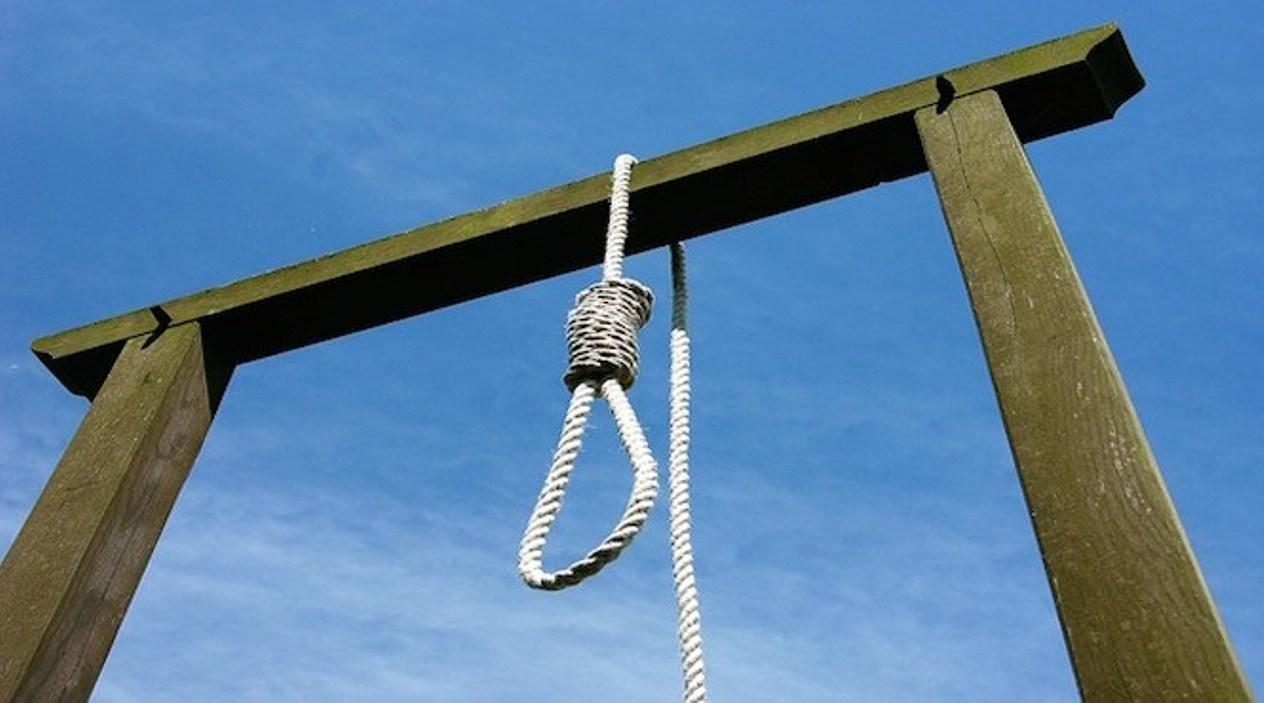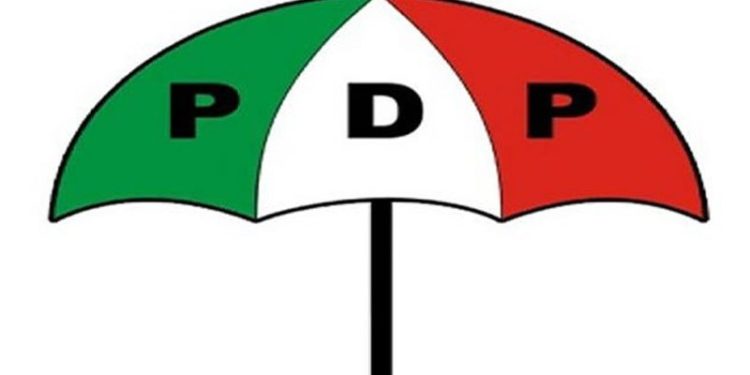Political parties have kicked against the new cash withdrawal limits introduced by the Central Bank of Nigeria, stating that it could choke the political process.
Parties including the Peoples Democratic Party, Social Democratic Party, Africa Democratic Congress and African Democratic Party contended that the policy would affect the fundraising required by the candidates to sustain their campaigns ahead of the 2023 elections.
Also, speaking in separate interviews with The PUNCH on Sunday, the African Action Alliance, Zenith Labour Party, and the All Progressives Grand Alliance declared that it would impact the poor rural dwellers.
Governor Ahmadu Fintiri of Adamawa State had accused the CBN Governor, Godwin Emefiele, of targeting the political class with the new cash withdrawal limit which restricts over-the-counter cash withdrawal by individuals and companies to N100,000 and N500,000, respectively, per week.
It also limited point-of-sale machines and automated teller machine withdrawals to N20,000 daily.
According to a memo signed Tuesday by the CBN’s Director of Banking Supervision, Haruna Mustafa, withdrawals above the thresholds would attract processing fees of five per cent and 10 per cent, respectively, for individuals and corporate entities going forward.
In addition, third-party cheques above N50,000 shall not be eligible for OTC payment while extant limits of N10m on clearing cheques still remain.
The circular also directed banks to load only N200 and lower denominations into their ATMs and restricted withdrawal to N20, 000 per day from ATMs.
The policy, which will become effective on January 9, 2023, has generated criticisms but the CBN clarified on Wednesday that PoS operators could apply for waivers.
PDP campaign kicks
Commenting on the circular, the Director, Strategic Communications, National Election Management Committee of the PDP Presidential Campaign Council, Chief Dele Momodu, said the recent cash withdrawal policy announced would affect the parties’ funding activities, adding that “if enforced, the policy will strangulate the political process, not the PDP alone.”
He said, “In 2014/2015, I am sure if (President) Buhari had no access to funding, he would never have been the President of Nigeria. There are people who are making contributions to the political parties and some parties have set up structures to receive support from people. How then will they be able to access the fund if they are saying you cannot withdraw more than N100, 000 a week?’’ he asked
“I read somewhere that the CBN said the policy would not be rigid but why make the policy in the first place if it is not going to be rigid?” he queried.
On how the policy implementation may affect the PDP, Momodu said, “the Finance Committee is better placed to say the extent this will affect us as we prepare for a series of activities leading to the general elections. Maybe, the Finance Committee, if it thinks the party will be negatively affected, will consider writing to the CBN but like I said earlier, this is more of a problem for the ordinary man on the street than it is for a political party.”
He also spoke on how the new CBN policy would affect the poor.
He added, “Why make a policy that will largely affect the poor more than the rich? My worry is that most of our policies always target the poor. The PDP is worried about the poor market woman, the ordinary man on the street because we still run a cash-and-carry economy.
The National Chairman of the Africa Democratic Congress, Chief Ralph Nwosu, observed that the policy might pose a challenge to the parties, noting that the CBN did not carry out adequate sensitisation campaigns on it, stressing that it was politically motivated.
Nwosu noted that the policy would affect the party’s campaign, explaining that paying the ADC agents in the rural areas might be a challenge.
He added, ‘’How do you expect the ADC candidate to have the cash to do the things he wants to do and how do you think that this is the best time for such an undertaking?
‘’We have almost 200,000 agents that we must pay and 80 per cent of them live in rural areas. Is it that N2,000 or N5,000 that you pay them that you would transfer to each of them? How many of them have such a facility? So it’s completely inconsiderate of them.”
He added that the cash withdrawal policy would affect Nigerians negatively.
He said “What is the literacy level (of Nigerians), what kind of campaign have they done so far on the policy? You know, you can’t continue dealing with Nigerians as if we are still in the military, especially when that dictatorship is meted out by people who are not even in the military. It’s most irresponsible.
‘’We want to believe that the intention this time is also political. It is not only affecting the election but will affect the general way of living in Nigeria.
‘’This is part of the challenge we have as a country in that people in government occasionally just take actions on their own without caring how it will affect the masses. So, generally it’s not about how it affects the elections but about how it affects the society.
“There are people selling rice, beans and every day, people come to them to buy things and pay with naira and kobo, so before the CBN should do anything they should think about the society.’’
Also speaking, the factional National Publicity Secretary of the Social Democratic Party, Alpha Muhammed stated, ’’You cannot overnight bring a policy that will seriously affect a project as big as the general elections.
‘’Definitely, cash has to move, people have to pay for logistics; you have to give cash to agents, you have to give cash to those who will transport people to rallies. It will definitely affect the success of the election and the campaign itself.’’
Asked if the parties would write to the CBN for a waiver, he responded, ‘’Of course, if the need arises, it is expected that the party or candidate will write to the CBN for a waiver. But it’s important for them to utilise cash in prosecuting some logistics aspect of the election campaigns.”
On his part, National Chairman and Presidential candidate of the African Democratic Party, Sani Yabagi, told The PUNCH that though the Federal Government might have been targeted at curbing the flow of money during the 2023 elections, political parties, he noted, might have logistical challenges if the policy implementation eventually takes off.
He argued, “I think the government is trying to control the flow of money in circulation. We have all agreed that vote buying and selling is a cankerworm to our democracy. So, if the intention of the government is to curb the use of cash for vote buying, this will be good news for everyone.
“But will this not amount to killing an ant with a sledgehammer? Again, which is better: the medicine or the sickness? Government must think about this again particularly as it would affect the logistics of all the political parties.”
The National Chairman of the Zenith Labour Party, Chief Dan Nwayanwu, expressed fears over the impact of the policy on the rural poor, noting that the lack of access to electronic platforms may trigger a crisis at the grassroots.
Speaking with The PUNCH on Sunday, the ZLP boss said, “The only negative aspect of this is the fact that the policy will affect the rural and urban poor. These are people who are out every day in search of their daily bread. How many of them have access to electronic platforms to transact business? Even the Point of Sales; are they evenly distributed everywhere? This is the worry of the Zenith Labour Party.
“As far as the parties are concerned, we are okay. Let those who stashed billions of naira in tanks bring them out. They should have the courage to bring them out. It is good to note that over N500bn have been returned in the past two weeks. Maybe before the elections, trillions will be returned to the banks.’’
According to the National Chairman of the All Progressives Grand Alliance, Chief Victor Oye, poor Nigerians would likely suffer from the policy if it eventually takes off, assuring however that such pain would not last.
He said, “The poor will be affected no doubt but this is just a temporary measure. It is not going to last. It is part of the process to make the transition to the new currency seamless. The pain and difficulty will ease out very soon.
“Of course, it will take time for poor Nigerians to get used to this but they will eventually embrace it. Let me also add here that this is a process in the journey to a cashless economy. There will be a question or two about the timing, particularly with elections around the corner. Still, the rich and the poor should support it.’’
Spokesman of Obi-Datti Presidential Campaign Council, Yunusa Tanko, explained that the Labour Party would support any policy that would bring a positive change and oppose anti-people programmes.
Noting that the naira has appreciated since the new policy was announced, Tanko said his party would not support waivers for parties, adding that this may be a ploy to stash money that could be used to buy votes during the polls.
However, the spokesman of the New Nigeria Peoples Party, Ladipo Johnson, differed, arguing that the CBN policy was aimed at taming inflation in the country.
While admitting that the policy could cause some inconveniences, he contended that it would not affect fundraising by parties, noting that donors could utilise online platforms to send cash to the parties of their choice.
Presidential candidate of the African Action Alliance, Omoyele Sowore said his party is not in any way worried by the cash limit withdrawal policy, stressing that it was targeted at poor citizens.
‘’The policy targets the poor, not powerful political figures and parties anyway,’’ he contended.
The Spokesman of the Tinubu-Shettima Presidential Campaign Council, Festus Keyamo, declined to comment on the matter.
“For now, I decline to give any comment on that. We have not met formally to take a position on the issue,” he said.
But the South-South Agenda for Tinubu/Shettima Support Groups condemned the CBN policy in strong terms, describing it as a plot to pitch the poor masses against the President.
The National Coordinator of the group, Mr. Bitrus Oliver, in a statement said, “This policy will clearly undermine the efforts of the Federal Government in sustaining micro and small scale enterprises across the country as it will limit the fund in circulation due to the non-availability of cash and may totally asphyxiate small and struggling businesses before the policy is stabilised.’’
Oliver argued that in almost all the rural markets across the country, 90 per cent of transactions are done by cash and not by mobile transfer, noting that pegging ATM withdrawal to N20,000 would stall many transactions and may even trigger chaos in the commercial sector.
Election bodies react
Reacting to the complaints by the parties, the Chairman of the Transition Monitoring Group, Musa Rafsanjani, observed that the policy would not affect politicians and their parties.
He added that though the policy sought to curb vote trading, politicians would still go round it and buy votes during the election.
“We all know that for the big politicians, this policy is not going to affect them because the bank, the same Central Bank will provide money for them to do their own campaigns.
‘’The big politicians, who are into vote trading, have ways in which they can blow (bypass) this policy because they can hide under so many identities to get money from the CBN.
‘’This policy will not affect them. The only people who will be affected are the rural people who don’t have access to the Internet, who don’t have access to android phones, and who do not know how to even transfer,’’ said Rafsanjani, who is also the Chairman, Transparency International Nigeria.
On her part, the Executive Director of the Centre for Democracy and Development, Idayat Hassan, also disagreed that the policy would affect parties’ fundraising, adding that it might help to at least level the playing field for all parties involved.
She stated, “Maybe it will even be better because while people are supposed to pay into bank accounts, any physical transfer of cash that is moved will allow for monitoring and will disadvantage one party against the other.
‘’So, maybe proportionally, as it comes to the parties, it might create a level playing field, since we can see where the money is going to, and who is giving them.
‘’It will now have to pass through the banking system, somehow reducing the role of money in politics. But the real casualties are the ordinary Nigerians who are largely unbanked and live in rural areas.”





